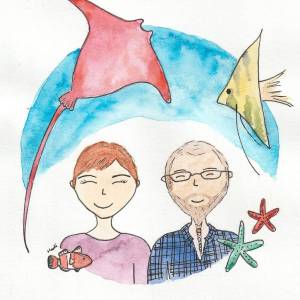Dragons
According to Vietnamese mythology dragons bring rainfall and are symbolic of life, growth, existence, and prosperity. In Korean culture dragons are regarded as bringers of clouds and rain and are associated with water and agriculture.
The Japanese dragons are considered to be water deities. In the Orient, dragons symbolize wisdom, longevity, sexuality, fertility, procreation, and regeneration. They are seen as mythical beings having magical powers and symbolize water.
The dragons of ancient India have been the Nagas’, serpents that existed in the underworld and harbored enmity with the Eagle-Man God, Garuda. These creatures were considered the wise and benign guardians of the life-giving properties of water.
The ancient Chinese regarded the dragon as the most potent of all symbols of energy and good fortune. They believed it to be the harbinger of incredible luck, prosperity, abundance, consistent success and high achievement. It represent potent propitious powers, especially control over rainfall, floods, and hurricanes.
The US and Canada have a common dragon, the ‘Horned Snake’ that is not a bad creature and is believed to come to the aid of young women. The Mesoamerican dragons are important gods in the Aztec and the Mayan cultures. the Feathered Serpent, the Quetzalcoatl or Kukulkan is credited with creating the Earth and everything else on it. It was believed to devour evil people and could control the weather and the rain.
According to the European myths dragons are symbolic of sin, wickedness, and ferocity. However, the Welsh folklore contains some notable exceptions to this view.

Comments
Sign in or get an account to comment.


